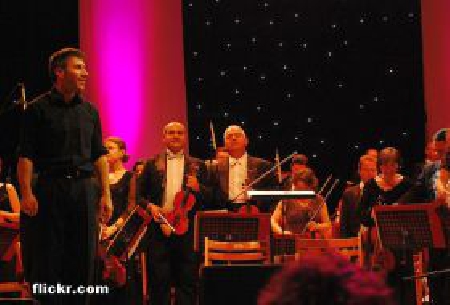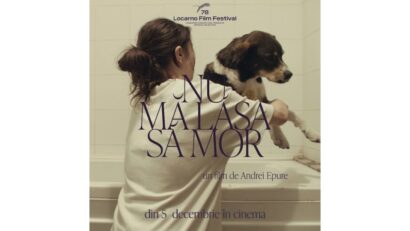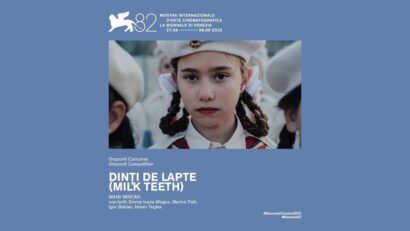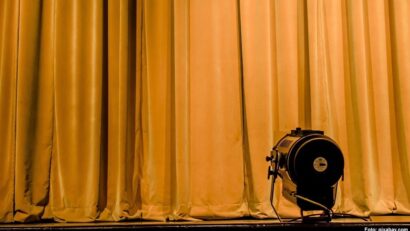Why Do We Go to the Opera?
We go to the opera for the same reason we read a good book, for the same reason we indulge in contemplating a work of art, for the same reason we go and watch a good movie, a fine play. In other words, we come to the opera to recall who we really are.

Eugen Cojocariu, 29.04.2012, 17:36
” We go to the opera for the same reason we read a good book, for the same reason we indulge in contemplating a work of art, for the same reason we go and watch a good movie, a fine play. In other words, we come to the opera to recall who we really are.” (Tiberiu Soare)
Here is a strong reason why we should go to the opera, a reason the talented and charismatic conductor Tiberiu Soare spells out at the conferences he gives every moth as part of the “Why Do We Go to the Opera? “ series. The cultural program was launched earlier this year by the Calea Victoriei Foundation jointly with the National Opera House in Bucharest. The organizers’ avowed aim is to approach opera in a relaxed and interactive way. Here is the conferences’ host Tiberiu Soare, talking on that series of events:
Tiberiu Soare: “ I don’t like calling them conferences: I ‘d call them interactive meetings instead. These are meetings where I invite participants to feel free and ask questions related to the night’s topic. Those meetings mainly target the younger audience, aged between 16 and 35. Yet they also target all sorts of people, from all walks of life, irrespective of age and background, people who want to find out something they had been ignorant of, regarding the opera and ballet. I have been actively seeking to purge my talk of any technical details that might make topic s hard to grasp. I suggest a topic — and at that I have been very pragmatic and have always picked up topics that are on the repertoire at the National Opera House in Bucharest. In other words, people either have watched the show previously, or are about to watch it, if discussions arouse their interest in any way. The meetings act more like an introduction to, or enable people to go deeper into, the understanding of a show they may have watched already. I come up with all sorts of details, even biographical details of composers and performers whose names are related to the title; first of all details help my audience make sense of the plot of the libretto. I believe any opera which is self-respecting starts off from the libretto, only to return to the libretto in the long run. Which means that text and plot are of utmost importance. Before anything else, an opera is theatre.”
A diversified public also means a wide range of questions curiosity. With details on that, here is Tiberiu Soare again:
Tiberiu Soare: ”The audience asks many questions, some of them are closely connected with the night’s topic, yet others turn out to be more general. Once I was asked for instance, why operas are divided into acts and scenes and what the difference is between an act and a scene. I made it clear how an opera show is made. I received questions such as why musicians in the orchestra wear a tuxedo, and that I think is an appropriate question; I also had more profound questions. There were people who asked me about the relationship between characters, or about the time reference incongruities they had spotted. In any case, the questions demonstrated an obvious interest in the operatic area and even a passion for opera, I should say. There were questions related to the conductor ‘s activity and they were most welcome because what I am coming up with is not the result of a musicological research study but is rather based on the knowledge gained during my entire conducting career .”
The first conference of the “ Why do we go to opera “ series was delivered in January. Its theme was “Individual freedom in Verdi’s La Traviata”.
Tiberiu Soare: “It was not by chance that we chose to speak about Verdi’s La Traviata in the first conference as part of this series of conferences. I think that La Traviata is the most representative opera and one of the most famous. It served as a departing point for my conferences, because it approaches one of the most accessible themes — it deals with social, moral tensions and it also refers to love and sacrifice all of them making for a Romantic drama. La Traviata is said to be performed every night, somewhere on the planet. I personally think that the major theme in La Traviata is the individual freedom versus social constraints.”
The program launched by the Calea Victoriei Foundation is meant to help the public become familiar with the beauty of opera. Conductor Tiberiu Soare, however, believes there only exists music, which is well or poorly performed. As for his musical taste, Tiberiu Soare is happy to realize that his hobby overlaps with his profession.
Tiberiu Soare: “I listen to operatic and symphony music with great pleasure. I enjoy Mozart, Mahler, Bruckner, Sibelius and my range of preferences is quite wide. I am a rock music fan — I like listening to Pink Floyd, Dire Straits, Queen, Red Hot Chili Peppers and once I enjoyed listening to Nirvana. I also find hip-hop quite interesting as well. Eminem is musician I look upon with tolerant eyes. Yet there are some musical genres like disco and pop music which I don’t understand very well and which I find to be outside my scope of sensitivity”.
Tiberiu Soare is one of the most talented and famous conductors of the young generation. In 2003 he won the Musical Critics’ Prize for his contribution to the Traviata 150 project. In 2006 the Actualitatea muzicala magazine granted him the Best Young Performer award and in the same year the Anonymous Foundation nominated him for the Best Young Artist of the Year in the Prometheus Awards Gala. Tiberiu Soare is currently the conductor of the State Opera House of Bucharest where he made his debut with Tchaikovsky’s “The Nutcracker” in 2005.






























